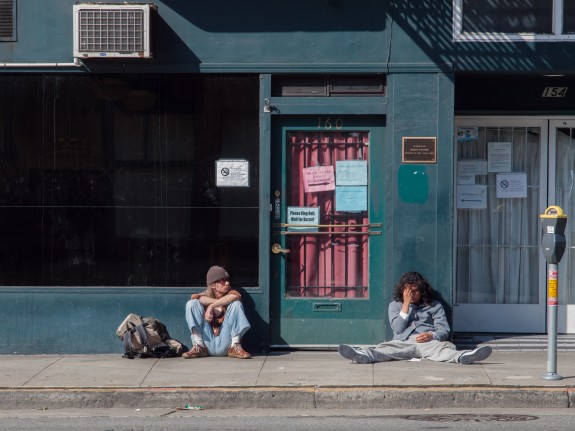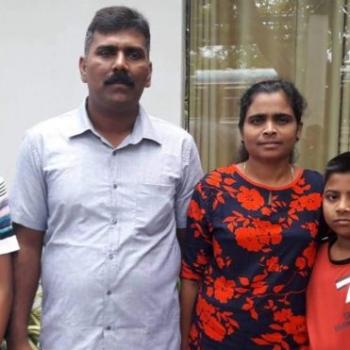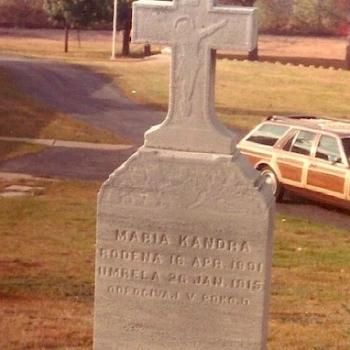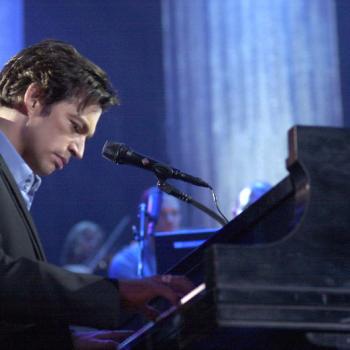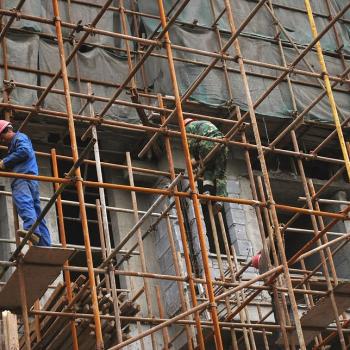It could be one of the most important questions you ask yourself:
Why are you Catholic?
What keeps you coming back here week after week, year after year?
In a time when so many other faiths are out there, offering what they claim is an easier, less difficult path to God—including a church right down the street that is promising free coffee and candy every Sunday morning—what draws you here? What makes you accept teachings that are hard, and pews that are sometimes harder, and obligations that are difficult and sacrifices that you’d rather skip?
Why here? Why not somewhere else?
A lot of us might answer like Peter in the gospel we just heard:
“Master, to whom shall we go? You have the words of eternal life.”
Ask people, and some will tell you they are drawn by the liturgies, the sacraments, the history, the timeless moral teaching or the certainty that this is the church of the apostles and of countless saints. As a tee shirt puts it: “Catholicism. Founded 33 A.D.”
But the answer of one woman I know strikes me as especially meaningful, particularly in light of the readings we’ve been hearing for the last few weeks.
The woman’s name is Kelley Cutler. She’s a social worker in San Francisco, who works with the homeless—particularly homeless youths, and especially those who identify as LGBT, Lesbian Gay, Bisexual or Transsexual. By one estimate, up to 40% of the teenage homeless in San Francisco fall into that group. Many are runaways. Some have been shunned by their families. Others are victims of abuse. They have no place to turn, no place to live. Some turn to prostitution. Kelly Cutler helps them find safety, sanctuary, and hope.
Kelley herself is gay. But she is also an obedient Catholic, faithful to Church teachings, and she is head-over-heels in love with Jesus Christ.
She became Catholic in 2009. In a recent interview, she said:
“To be honest, I wasn’t looking to become Catholic, but I had always longed for a spiritual connection. It’s a long crazy story,” she explained, “but basically I was drawn to the Church by the Real Presence of Christ in the Eucharist.”
She went on:
“As you can imagine, the work I do can be extremely intense and draining. Holding onto hope can be a huge challenge when the harsh reality of suffering and death is part of your daily experience. This is why I attend Mass on a daily basis. That is where I find my hope and strength to be able to do this work. It’s directly connected. I also go to Adoration with my favorite cloistered nuns up in Haight/Ashbury. They are my prayer warriors praying for me and the work I do.”
And she added:
“As a convert, I have a tendency to ask a lot of questions. One question I’ve asked most LGBT Catholics I’ve met is… “Why do you stay in the Church?” Think about it, they could go right down the street to another faith community that has different teachings. So why do they stay? I have been given the same answer by every LGBT Catholic I’ve met. The Eucharist.”
The Eucharist. The Eucharist.
This is what draws them, what keeps them, what gives them hope. The Bread of Life. “Master to whom shall we go?” There is nowhere else to go. For any of us. In our weakness, in our folly, in our pride, there is no other sanctuary or salvation. In a world haunted by sin and death we need the Bread of Life.
Again and again over the last few weeks, St. John’s gospel has challenged us, jolted us, encouraged us, convicted us. The “Bread of Life discourse” has reminded us of the gift we have been given. What began with a miraculous feeding on a hillside in Galilee continues here and now, 2,000 years later. Taste and see the goodness of the Lord, the psalmist proclaims. The goodness is here. It is now. It is something we cradle in our palms, and receive on our tongues. Taste and see the goodness of the Lord.
Taste, and believe. The Christ who was present to the multitudes in a mystery no one could understand is present with us again, at every Eucharist, at every Mass, in ways we cannot completely understand but in a way that the heart and soul can’t deny.
So: Why are you Catholic?
How could any of us be anything else?
The irony, of course, is that none of us is worthy of the gift we are about to receive. “Lord, I am not worthy that you should come under my roof.” The prayer we make at every Mass, the prayer we carry with us in the communion line, is that we will be made more worthy, that our souls will be healed, that we can somehow be acceptable vessels to carry Christ in our hearts, in our bodies and into the world. We pray for the grace to “glorify the Lord by our lives.” We pray to turn away from our sin. We pray for God’s mercy to help make it so.
Christ’s first disciples—flawed fishermen full of ignorance and pride, doubt and greed— knew they were not worthy. But they also knew they had nowhere else to go. They had faith. And they had hope.
Their story is our story.
It is, after all, part of the greatest story ever told—and it is still being told. It is up to us to pass it on.
Why are we Catholic?
Where else can we go? What else can we possibly be? We have Jesus Christ, present in the Eucharist.
And not only are we hungry to receive him; we also yearn to make his presence known to others, that they might also receive him, that we might say to them as it has been said to us:
Taste and see the goodness of the Lord!
Photo by Franco Folini / Flickr / Creative Commons

